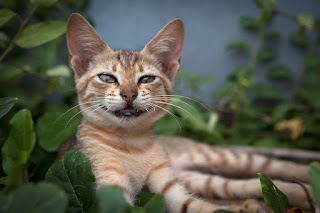The past week on the IPKat has been a mix of different IP issues. Here we go!
Trade
Marks
GuestKat Nedim Malovic reported and commented on a couple of EU
trade mark decisions:-
· The
first is the decision
(Case T-251/21 Tigercat Inc v EUIPO) of the EU General Court on the appeal in
relation to the opposition against “Tigercat” filed by Caterpillar Inc. based
on its earlier figurative EU trade mark for “Cat” and device (see here).
· The
second decision Nedim reported on is the decision (Case
R-197/2021-5) of the EU Board of Appeal on the registrability of a position
mark, comprising of a tread and outer portion of a tyre in light grey (see here).
On the oriental side, readers may recall that Bruce Lee Enterprises (the estate of the late well-known Chinese American martial artist Bruce Lee) filed a lawsuit against “Real Kungfu” fast-food chain for using Bruce Lee’s image without permission in Shanghai back in 2019. InternKat James Kwong reported that the trial has recently begun. For a refresher on this case, you can refer to James’ post here.
Patents
SpecialKat Rose Hughes reported and commented on two Board of
Appeal decisions:
· T-0043/18,
which concerns the European Patent Office’s approach to novelty for purity of
compound inventions (see here).
· T-1869/19,
which relates to the patentability of a medical device defined in a patent
according to its method of manufacture, in the form of a “product-by-process”
claim (see here).
Copyright
A High Court in South Africa delivered a judgment
holding that certain provisions of the Advertising Regulatory Board (ARB)’s Code of Advertising Practice
were unconstitutional. This touched upon
issues relating to the ARB’s power in relation to trade mark and copyright
laws. The Supreme Court of Appeal of
South Africa has recently ruled
on the appeal brought by the ARB.
SpecialKat Chijioke Okorie reported on this here.
Other
For the first time in Turkey, a court has rendered a decision on
the issue of NFTs. In particular, the
Istanbul Third Civil Intellectual Property Court issued a preliminary
injunction regarding NFTs. The subject
of the dispute pertained to the exploitation of the portrait of the late Cem
Karaca, who was an artist, songwriter and composer with a legendary reputation
in the world of Anatolian rock music.
Katfriends Mutlu Yıldırım Köse and Havva Yıldız have taken the opportunity to discuss this case here.
Decentralised Autonomous Organisations (DAOs) are a new type of quasi-corporate entities, existing with the use of blockchain and smart contracts. Katfriend Marianna Ryan has written here on the topical issue of how DAOs are to be treated and what IP issues come with them.
 Reviewed by James Kwong
on
Friday, September 16, 2022
Rating:
Reviewed by James Kwong
on
Friday, September 16, 2022
Rating:





![[GuestPost] G1/24: Tuning in! A take on the state of proceedings before oral proceedings](https://blogger.googleusercontent.com/img/b/R29vZ2xl/AVvXsEjZhEivE5bp7QOwZsyZXAXbVNYSmLjUthkB2Q7fm1_dpB97u5lIQeyWT9ZadUTAH3Z-hXn13VpW4vBDRPx9emCnoDV6tbUTkyvfmqPv1nNInL8XMdrAtSZ2hcRQr2LjxKovC9wTk_XyZxQ0CtX1MUrO_Muz3OJ4ld8AftymsdUmKD7xNksYMwk6/s72-c/Picture%201.png)
![[Guest post] ‘Ghiblification’ and the Moral Wrongs of U.S. Copyright Law](https://blogger.googleusercontent.com/img/b/R29vZ2xl/AVvXsEhxl1BQBAW3Y-asjb1xXB9eA4DYy77fky6WgR-prC-_6DeBbDqOgCUDWyiz0Q3B23MWWAXnkbS2H2js7OUwA0JQXAHmsyVFgGIHeJz7zJ791vTzOD-4SJqWFIuywFXQyd3ahybbdZd4e8IEVfcNqctvyR8lumv_Gix6Tsw5cSvbHpTI1nwvztDuAQ/s72-c/IMG_2179.HEIC)

![[Guest book review] The Handbook of Fashion Law (with a discount code)](https://blogger.googleusercontent.com/img/b/R29vZ2xl/AVvXsEgB4h2AdqJKwq9O3Ft4Mb7C39tv_NeFpkzrOfvhIsuwAkM_ops2Hgj7fdwzq_TQsjQDvQrQa-yyC9Q9pNiugseXRlUaMdsr_cmYUbh9lH8HDECMCbsTuNboVgpafyEhkgDkVS6ruHkuz8Sx0QVGI_1S8R9kbsHdNIYrRjqhyphenhyphen010_txjJUYvlZOtWA/s72-c/Fashion%20Law%20Book%20Bicture.jpg)








No comments:
All comments must be moderated by a member of the IPKat team before they appear on the blog. Comments will not be allowed if the contravene the IPKat policy that readers' comments should not be obscene or defamatory; they should not consist of ad hominem attacks on members of the blog team or other comment-posters and they should make a constructive contribution to the discussion of the post on which they purport to comment.
It is also the IPKat policy that comments should not be made completely anonymously, and users should use a consistent name or pseudonym (which should not itself be defamatory or obscene, or that of another real person), either in the "identity" field, or at the beginning of the comment. Current practice is to, however, allow a limited number of comments that contravene this policy, provided that the comment has a high degree of relevance and the comment chain does not become too difficult to follow.
Learn more here: http://ipkitten.blogspot.com/p/want-to-complain.html